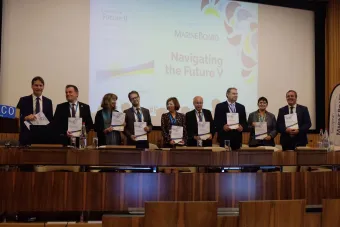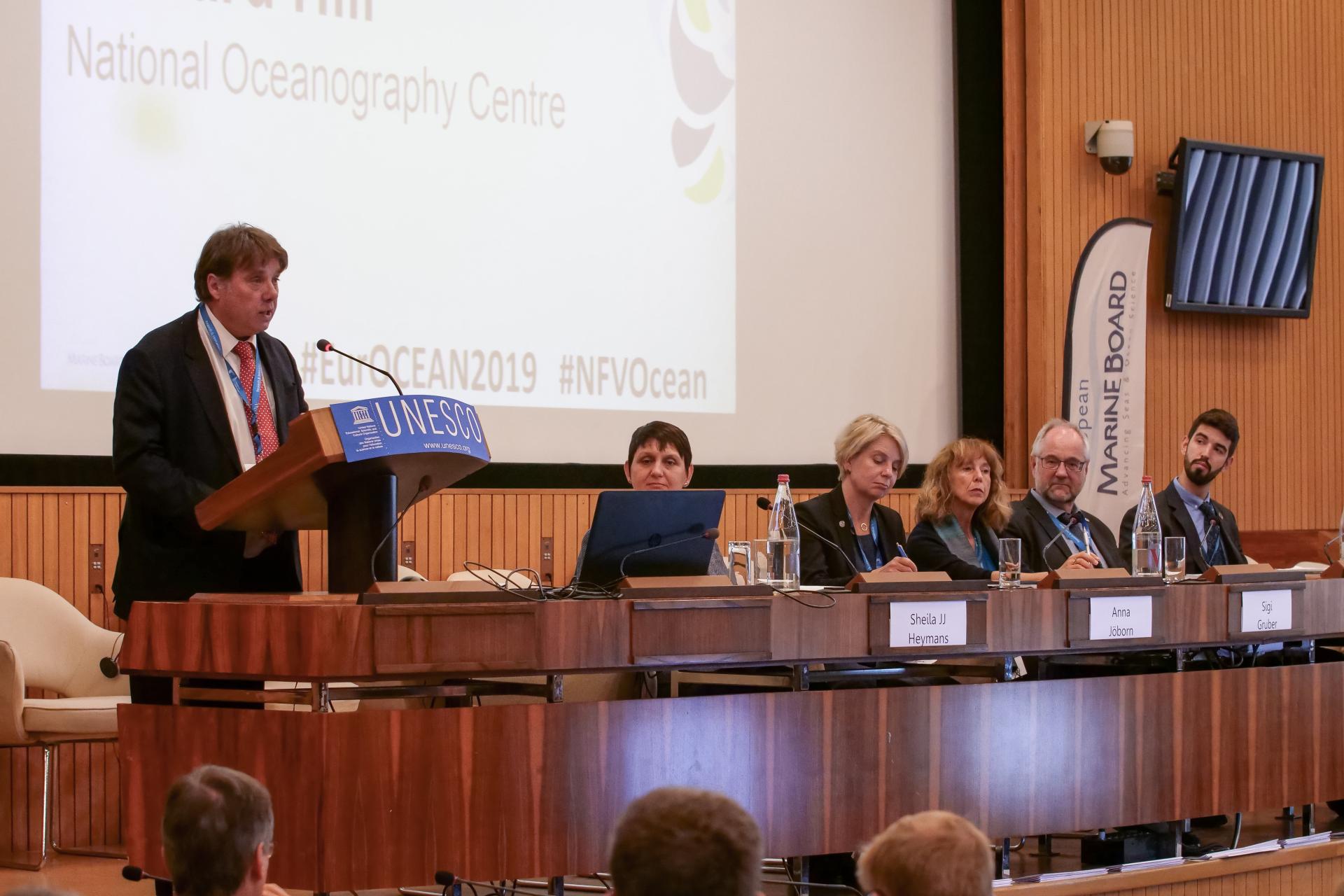
Leading ocean experts, including from the National Oceanography Centre (NOC), have launched a new publication, titled Navigating the Future V (NFV), which will provide European governments with robust, independent scientific advice and expert opinion on future seas and ocean research to 2030 and beyond.
The experts from the European Marine Board, an independent non-governmental advisory body of over 10,000 marine scientists, to which the NOC belongs, have identified the key areas of marine science where there are still gaps in knowledge.
In the foreword, Jan Mees, Chair, European Marine Board, states: “This knowledge is critical in understanding the four-dimensional ocean, to predict tsunamis and the impact of multiple stressors on biogeochemistry and biology, and to understand the impact of the future blue economy on our marine ecosystems. NFV shows that we need transdisciplinary science and sustainability science to address the management of a holistic four-dimensional ocean. It also highlights the technological advances and modelling needed for a possible future virtual ocean that would enhance public engagement and understanding of the ocean.
"NFV proposes the science we need for the forthcoming UN Decade for Ocean Science for Sustainable Development (2021–2030), the next European Framework Programme, Horizon Europe, and its Mission on Healthy Oceans, Seas, Coastal and Inland Waters.”
Specifically, the report recommends a solutions-oriented marine research agenda, co-designed with all stakeholders, and with the governance of sustainability at its core. It should address the following key knowledge gaps:
- The four-dimensional ocean (changes in the three-dimensional ocean over space and time) and functional links between the components of the marine system, i.e., physics, chemistry, biology, ecology and humans;
- The impact of multiple stressors (e.g., climate change, pollution, overfishing) on the functioning of marine ecosystems, their interactions, evolution and adaptation over time, and the ecosystem services they provide;
- The characteristics, probability and impacts of climate-related extreme events and geohazards (e.g., marine heat waves, meteotsunamis and submarine earthquakes, landslides, volcanic eruptions and their associated tsunamis) and how these might change under climate change; and
- Ocean technologies, modelling, data and artificial intelligence needed for sustainable ocean observations to understand, predict and manage human impacts on the ocean.
Key actions include the development of a business model ensuring the long-term economic sustainability of ocean observations. We also need to develop a new generation of sustainability scientists and establish a sustainability forum within Europe bringing together all actors including industry and civil society.
The report has been a collaborative effort starting in November 2017 with a planning meeting of 19 leading European experts in the field of marine science and related disciplines to decide the high-level content. Larger collaborative working groups with representatives from 13 European countries then worked to identify knowledge gaps and draft the recommendations of the report.
The NOC’s Executive Director, Ed Hill (pictured below) and Chief Scientist for International Development, Kevin Horsburgh contributed to the report. Speaking at the launch of Navigating the Future V, in Paris today, Executive Director of the NOC, Professor Ed Hill, said; “Navigating the Future V is a landmark document, worthy of attention by the entire science community. It is framed very clearly in the context of science for sustainable development - centered on solving societal challenges and improving management of marine resources. It emphasises the critical importance of the decade to 2030 in finding solutions and the unprecedented call on the marine science community to rise to the challenge. Its thinking about the key scientific problems that need to be addressed will help position the European marine science community to contribute strongly to the UN Decade of Ocean Science for Sustainable Development 2021-2030.”
